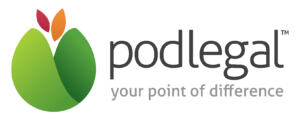Imagine: You have just finalised a fantastic name or logo for your new business or product. It’s catchy, stylish and you can hardly contain the excitement to start sharing it with the world, and rolling it out on all your signs, brochures, websites and business cards.
There’s just one problem: You haven’t conducted any searches for similar brands, business names or logos, and you are oblivious as to whether someone else is already using it.
Unfortunately, this scenario is not fictional for many small business owners, who may not be aware that they are infringing another person’s intellectual property rights. Just ask the ‘Queen of Tarts’.
A Canadian example
In a Canadian dispute, Ms Kearney, operated a bakery and café for sweet treats and cakes under the name, the ‘Queen of Tarts’. The name was the bakery’s identity and ‘Queen of Tarts’ became her persona.
What Ms Kearney didn’t know, was that the name ‘The Queen of Tarts’ had been successfully trade marked by another pastry chef, Ms Pick. As the registered trade mark owner, Ms Pick owns the right to use the brand ‘The Queen of Tarts’, in connection with pastries and other baked goods, to the exclusion of all others, including Ms Kearney. Consequently, Ms Pick successfully sued for trade mark infringement.
The Canadian Federal Court ordered Ms Kearney to pay Ms Pick $10,000 in damages, plus court costs. Further, she would have to spend thousands more to re-brand her business. The consequences for Ms Kearney and her business as the ‘Queen of Tarts’, were irreparable.
Like many small business owners, Ms Kearney believed that registration of her business name would be sufficient to protect her legal interests, in using the brand ‘Queen of Tarts’ for her pastries. She received uninformed advice from fellow small business owners and was not aware of the significance of her actions. She failed to seek professional legal advice and consequently, was not equipped to navigate the legal system on her own.
Ms Kearney has now learned her lesson and advises business owners to protect their businesses by registering their business names as trademarks. After all, your business’s identity in the market place is the most valuable asset of any business.
Protecting your image
Businesses should be just as cautious in searching for prior use of similar logos, as one Australian case demonstrates.
Shape Shopfitters Pty Ltd, changed their name from Billing Long Constructions Pty Ltd. At the same time, they also applied to register a new logo, as a trade mark. Their logo featured the word ‘SHAPE’ in large text, with ‘SHOPFITTERS’ and ‘EST 1998’ in smaller text beneath. The words were included inside a crimped outline, which the judge called a ‘bottle cap border’. The trade mark was registered on October 2015.
The accused infringing company, Shape Australia, decided to rebrand themselves in 2015. As part of their new image, Shape Australia began using two new logos which featured the text ‘SH^PE’ inside a circle. The first logo was set in a yellow circle on a black background, while the second logo was translucent and fixed onto the image of an office landscape.
Shape Australia was, in fact, a larger and longer existing company than Shape Shopfitters Pty Ltd. However, they had failed to check whether their new logo was substantially similar to any previously registered trade marks.
Luckily for Shape Australia, the Court found that the text and circle border were different enough to avoid infringement. The case was a timely reminder, however, for businesses to consider the intellectual property rights in logos as well as business names, and to ensure their defining symbol is unique.
Are your trade mark searches comprehensive?
Businesses should ensure they are thorough in searching for similar trade marks, or risk expensive litigation and the toll of having to recreate a brand image.
In a 2014 Australian case, an online vitamin business was found to have infringed Nestle’s trade mark rights through the use of the business name “A-SASHI”. The business owner, James Christian, had searched for identical marks, and incorporated and registered the business name. He had been selling his products under this name since 2012.
The Federal Court found Christian’s search of similar trade marks to not be thorough enough. However, as the name was considered substantially similar to Nestle’s ‘MUSASHI’ – used on a range of dietary supplements and sports nutrition goods, Mr Christian was ordered to pay substantial damages to Nestle, leaving him in significant debt.
Lesson for new business owners
Before you pour your savings into your new business venture, do your homework. Order a trade mark search for your new brand before you sign off on the advertising, shop fitting, posters and packaging. An experienced Registered Trade Marks Attorney is very well positioned to assist you with this.
The purpose of a trade mark search is to identify any potential risks and liabilities arising from identical or similar brands that are already being used by others. A trade mark search will also help show you how strong or weak your brand is, compared with others, and whether it is distinctive enough to be easily distinguished from other competing traders in the market place. In other words, it will show you how likely it would be for you to be granted exclusive rights to use your brand, in connection with your goods or services.
Therefore, a comprehensive and thorough trade mark search is the first step to protecting your business interests. Without one, you run the risk of infringing upon another person’s intellectual property rights, and paying thousands in damages as a consequence.
Can you afford to take on this risk, which can be avoided with relative ease? Request a FREE trade mark search from Pod Legal by contacting us today.



